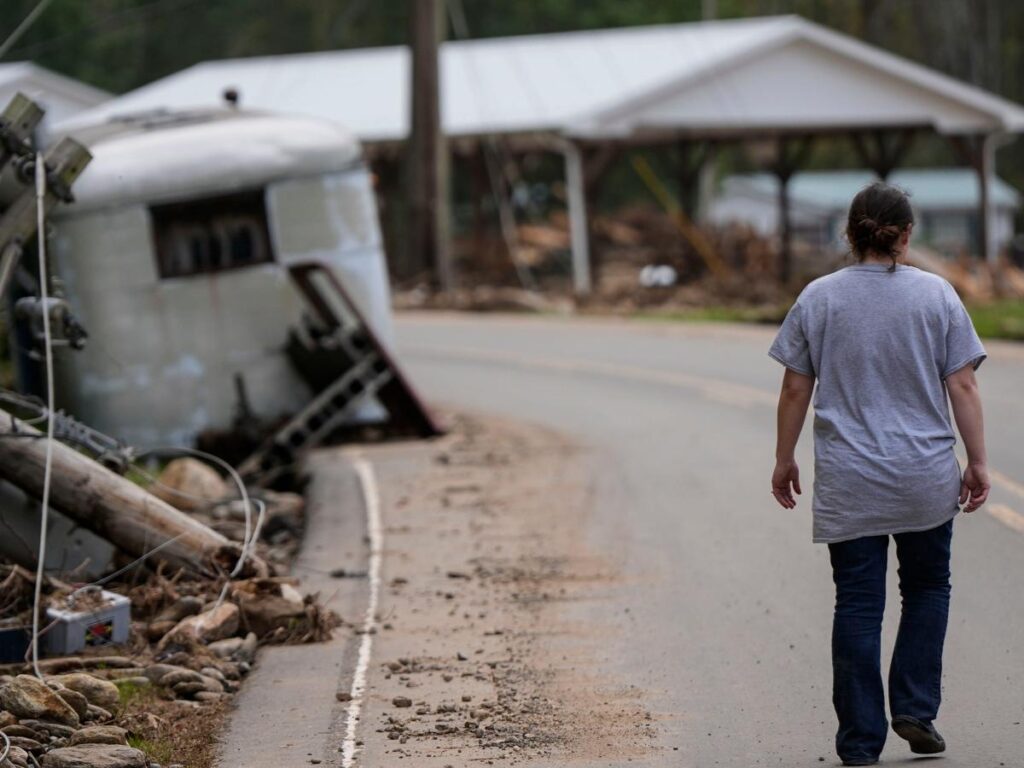In the aftermath of Hurricane Helene, government officials from both major political parties are urging the public to cease the spread of misinformation that has emerged alongside recovery efforts in the affected areas. As the storm caused significant destruction in North Carolina and beyond, misinformation has proliferated, particularly on social media platforms where unverified claims, often accompanied by misleading AI-generated images, have gained traction. Figures such as Donald Trump and Elon Musk have contributed to the dissemination of these false narratives, which criticize the Federal Emergency Management Agency (FEMA) and the administration of President Joe Biden. The current political climate, coinciding with a presidential election year, has further complicated the situation, as many individuals exploit the disaster for partisan attacks rather than focusing on recovery.
Mekela Panditharatne, a senior counsel at the Brennan Center for Justice, noted that while misinformation typically surges during times of emergency, the current volume of false claims is particularly significant, likely due to the impending national election. In this climate, high-profile voices, including Musk, have made unsubstantiated accusations against FEMA’s effectiveness, which were later countered by fact-checks from government officials such as Transportation Secretary Pete Buttigieg. Musk’s claims included the erroneous assertion that Asheville’s airspace was closed to prevent recovery efforts, prompting Buttigieg to clarify that this information was incorrect. Following a direct conversation with Musk, Buttigieg confirmed that flights were indeed operating in the area.
Former President Trump has also leveraged the hurricane’s devastation to undermine the Biden administration, falsely alleging that FEMA funds were redirected to aid illegal immigrants. Despite a Washington Post investigation clarifying that no such misallocation occurred under Biden, it is noteworthy that Trump himself had approved the redirection of disaster relief funds for immigration control during his presidency. The climate of misinformation creates a dangerous environment during emergency situations, with officials raising alarms about how these false narratives can undermine effective recovery efforts.
In response to the barrage of misinformation, FEMA has established a dedicated fact-checking resource to combat false claims regarding relief efforts. Officials in North Carolina, including Governor Roy Cooper, have shared fact-checks on social media to counter the spread of conspiracy theories. Republican leaders, such as North Carolina Senator Kevin Corbin, have joined the bipartisan call for the public to refrain from circulating “conspiracy theory junk,” emphasizing that such misinformation diverts attention from the hard work accomplished by first responders. Additionally, U.S. Senator Thom Tillis reaffirmed these sentiments, noting that the misrepresentations often originate from those far removed from the actual response on the ground.
The spread of misinformation poses significant challenges to ongoing recovery efforts, as officials point out that it can deter individuals from pursuing the critical assistance they require during a crisis. Panditharatne highlighted that while it is reasonable for people to criticize the adequacy of a response, many claims made by influential figures lack credible evidence and contradict established facts. In times of crisis, gaps in information can lead to a flood of misinformation, and officials stress the responsibility that influential individuals have to provide accurate information that supports rather than undermines recovery efforts.
As recovery efforts continue in the wake of Hurricane Helene, officials across the political spectrum recognize the need for a united front against the tide of falsehoods that threaten to hinder effective disaster response. With the stakes high for both affected communities and the first responders striving to assist them, the fight against misinformation becomes crucial in ensuring that accurate information prevails and that communities receive the aid they desperately need. As the situation unfolds, the actions and words of prominent figures like Musk and Trump will be closely scrutinized, as their influence can significantly impact public perception and behavior during critical recovery periods.

